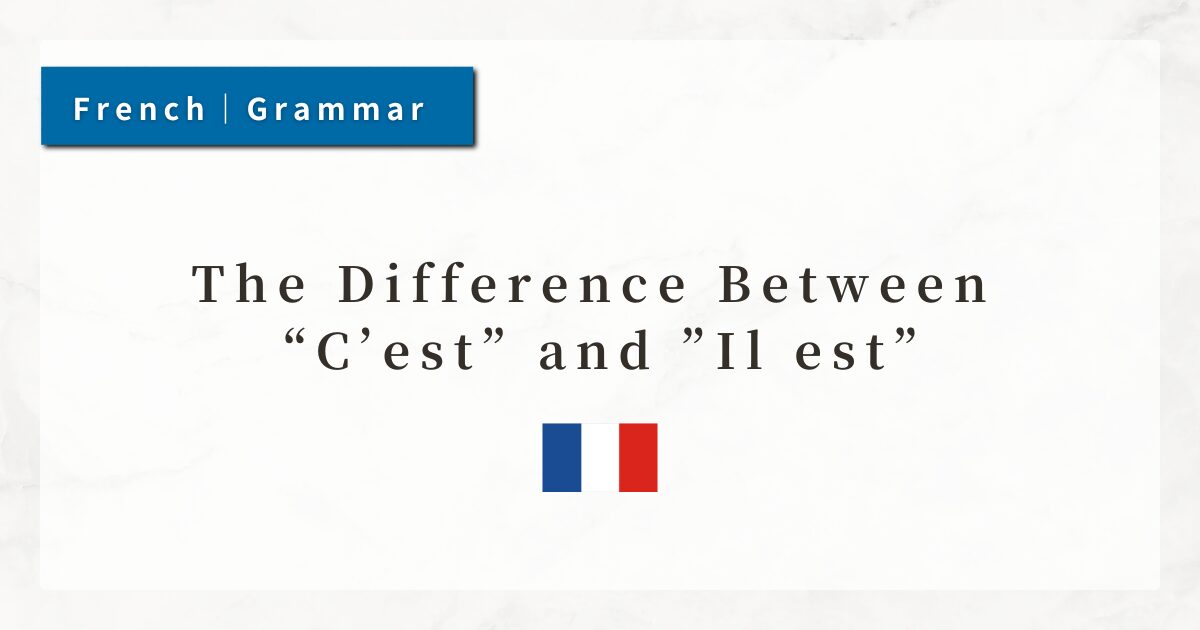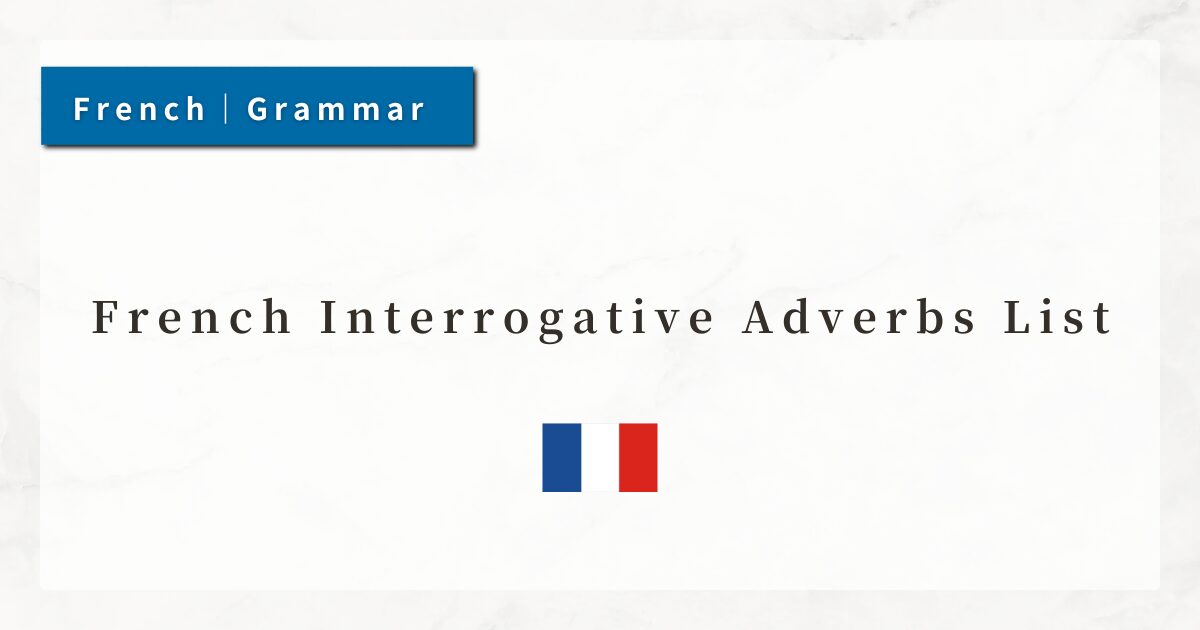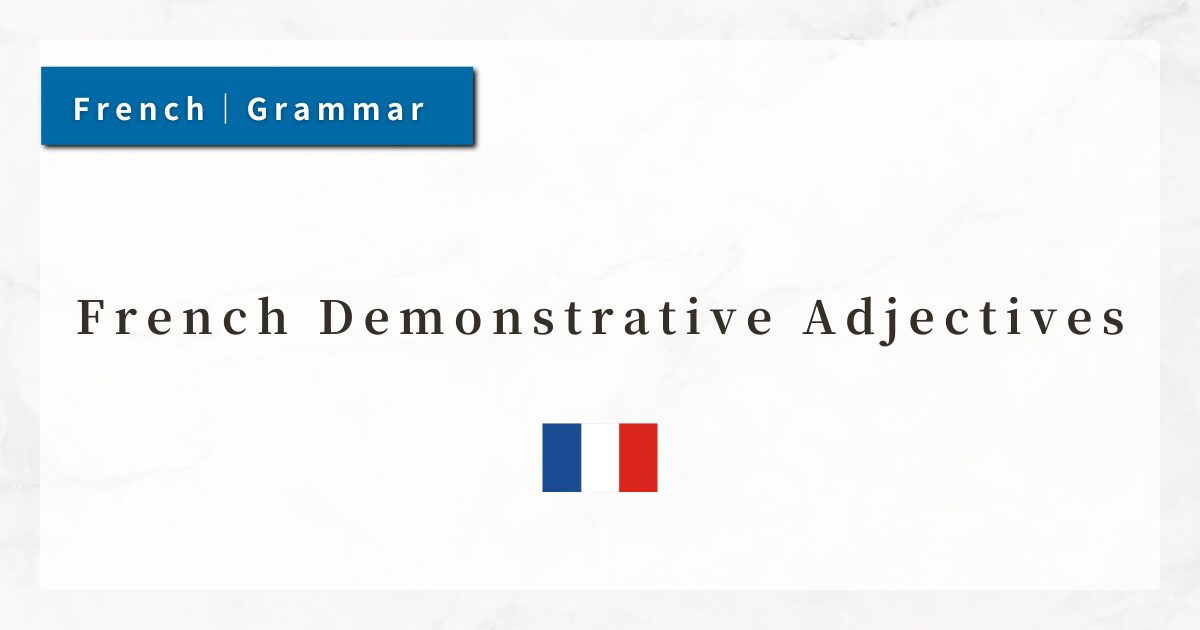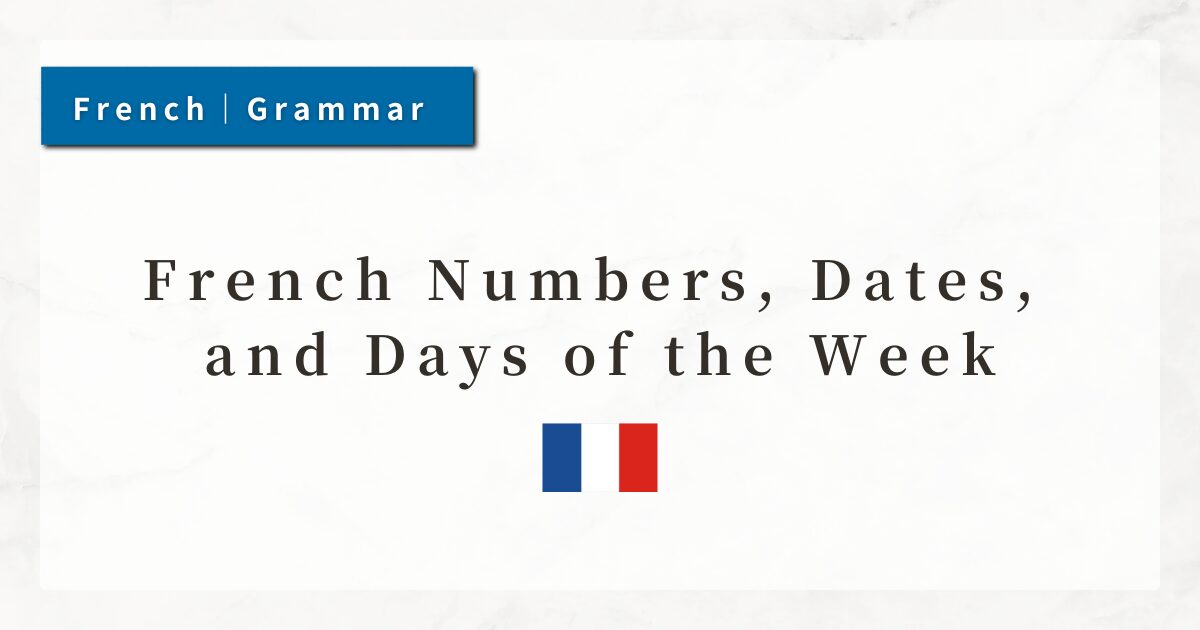#20 Advanced French Negatives | Variations and Usage of Negative Sentences
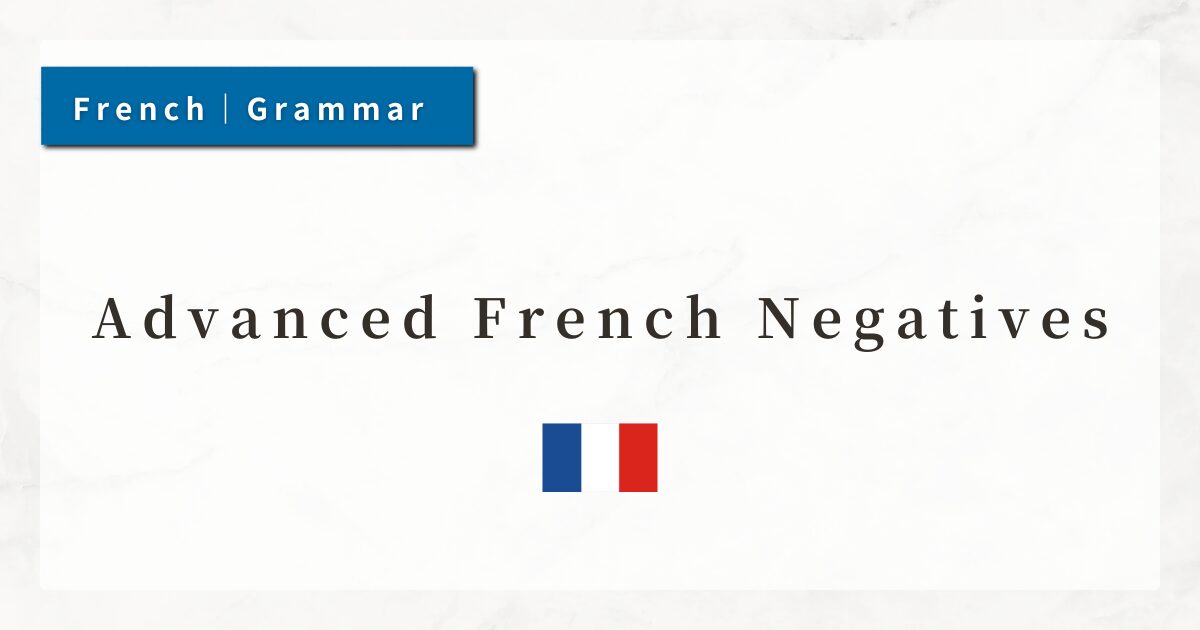
Negation in French is not limited to “ne … pas.” Depending on the type of negative word used, the nuance of negation changes significantly, such as “never,” “nothing,” or “no longer.”
In this lesson, I will explain the main types of French negation and how they are used.
1. The Basics of French Negation
French negative sentences generally follow the structure: “ne + verb + negative word.”
Unlike English, which uses only “not” to negate, French always requires a pair of elements.
- Je ne parle pas.
(I do not speak.) - Il ne mange jamais de viande.
(He never eats meat.)
The pattern is: ne before the verb, and pas / jamais / rien, etc., after the verb.
2. Types of Negative Words and Their Meanings
2-1. ne … pas : not, do not
The most basic form of negation, used to deny an action, existence, or state.
2-2. ne … jamais : never
Negates frequency or experience. Equivalent to English “never”. It expresses “zero times” and can be used in past, present, or future.
2-3. ne … plus : no longer, not anymore
Denies an action or state that once existed, showing contrast with the past. Equivalent to no longer / not anymore.
2-4. ne … rien : nothing
Used to negate an object or the content of an action. Rien is placed immediately after the verb or at the end of the sentence.
2-5. ne … personne : nobody, no one
Used to completely negate people. Personne is often placed at the end of the sentence.
2-6. ne … pas encore : not yet
Expresses incompletion or something expected in the future that has not yet happened. Often contrasted with déjà (already).
2-7. ne … aucun(e) : none, not any
A complete negation of quantity. Replaces articles (un, une, des) and agrees in gender with the following noun.
3. Syntactic Function and Word Order of Negative Words
Negative words in French function differently depending on their grammatical role: some act as adverbs, others as nouns (subjects/objects), and some as determiners. Word order changes accordingly.
| Negative Word | Function | Basic Word Order | Example / Notes |
|---|---|---|---|
| pas / jamais / plus | Adverb | ne + verb + negative word | Placed right after the verb (after the auxiliary in compound tenses) |
| rien / personne | Noun-like (object/subject) | ne + verb + negative word (often at sentence end) | Can serve as object or subject |
| aucun(e) | Determiner (adjective) | ne + verb + replaces article | Placed before noun; must agree in gender/number |
- Il ne mange jamais de viande.
(He never eats meat.)
→ adverbial function - Je ne vois personne.
(I see no one.)
→ noun-like function - Elle n’a aucune chance de gagner.
(She has no chance of winning.)
→ determiner function
4. Negation with Compound Tenses
In compound tenses (avoir/être + past participle), negation is placed around the auxiliary verb.
- Je n’ai pas compris.
(I did not understand.) - Tu n’as jamais visité Paris ?
(Have you never visited Paris?) - Il n’a rien dit.
(He said nothing.) - Nous n’avons vu personne.
(We saw no one.)
Pas, jamais, rien are placed directly after the auxiliary, while personne is often placed at the end.
5. Omission of “ne” in Spoken French
In everyday speech, ne is often dropped, and only the second element of negation is used.
- Je sais pas.
(Standard: Je ne sais pas.) - Il veut rien faire.
(Standard: Il ne veut rien faire.)
However, grammatically this omission is incorrect, so ne must be retained in written French.
6. Changes in Articles and Partitive Articles in Negative Sentences
In negation, indefinite articles (un, une, des) and partitive articles (du, de la, des) change to de / d’.
Note: d’ is used before a vowel or silent h.
- J’ai un chien. (I have a dog.)
→ Je n’ai pas de chien. (I don’t have a dog.) - Elle boit du café. (She drinks coffee.)
→ Elle ne boit pas de café. (She does not drink coffee.)
When the verb is être, the article does not change in negation.
- C’est un problème.
(That is a problem.)
→ Ce n’est pas un problème.
(That is not a problem.)
7. Summary
- The basic structure is “ne + verb + negative word”.
- Beyond ne … pas, other forms such as jamais (never), plus (no longer), rien (nothing), personne (nobody) expand the meaning of negation.
- In spoken French, ne is often omitted, though in writing it must be retained.
- Pay close attention to word order and grammatical function of each negative expression.
- In negation, indefinite and partitive articles generally change to de, except when used with être.

